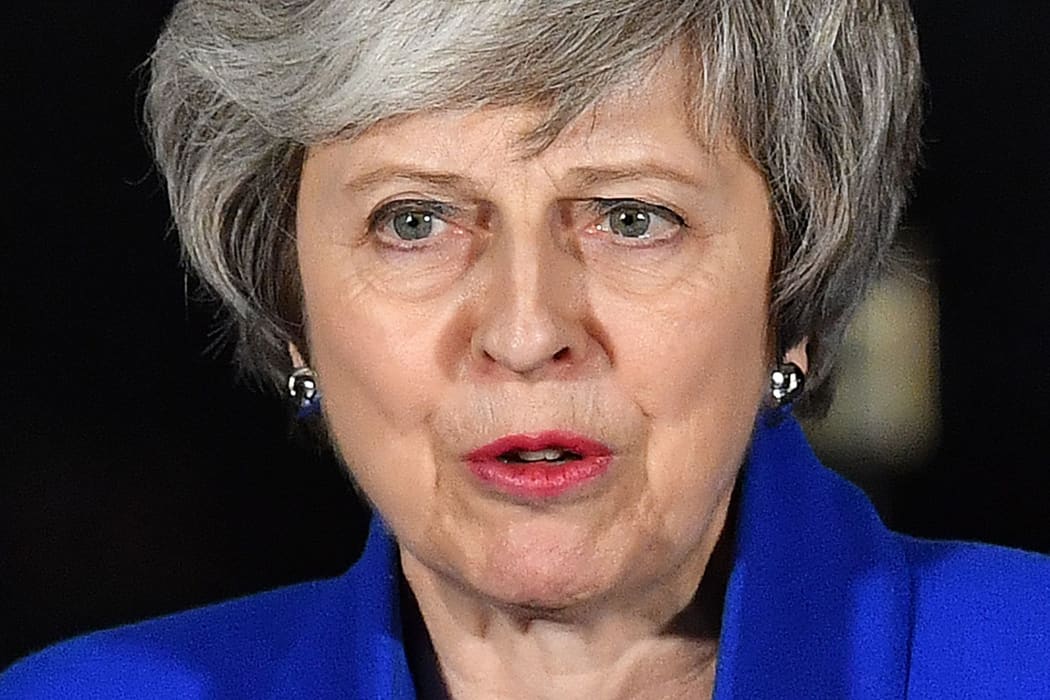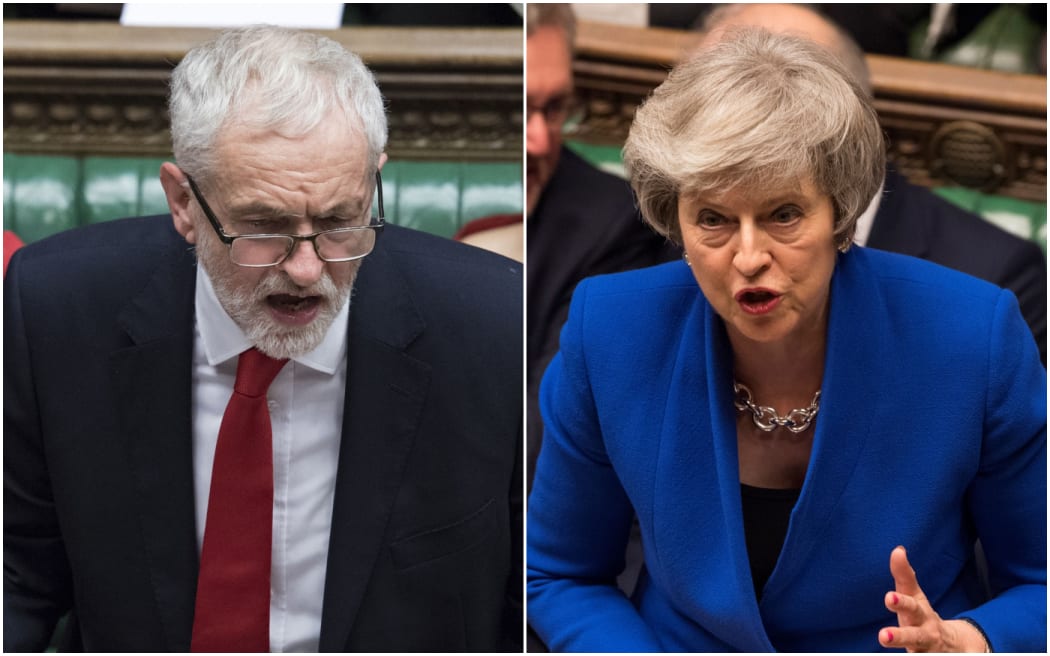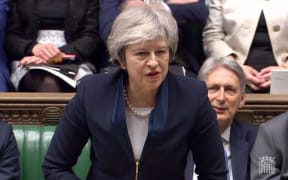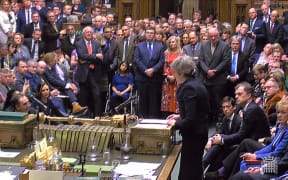UK Prime Minister Theresa May has survived a vote of no confidence in her government called by the Labour Party after her Brexit deal was comprehensively rejected in parliament yesterday.

Britain's Prime Minister Theresa May delivers a speech to members of the media in Downing Street in London on January 16, 2019, after surviving a vote of no confidence in her government. Photo: AFP
Mrs May won the vote by 325 to 306.
She said immediately after the vote she would continue to work to remove the country from the EU, and would start meetings with all party leaders as well as senior MPs right away.
"The government approaches these meetings in a constructive spirit and I urge others to do the same. But we must find solutions that are negotiable and command sufficient support in this house."
She said she would return to the house on Monday to "table an amenable motion and to make a statement about the way forward".
Labour Party leader Jeremy Corbyn said the prime minister needed to take off the table the prospect of a no-deal Brexit before there could be discussions about the way forward.
Later in a news conference outside 10 Downing Street, Mrs May said she was disappointed the leader of the Labour Party had declined to meet with her.
She said she had just held constructive meetings with the leader of the Liberal Democrats and the Westminster leaders of the Scottish National Party and the Welsh party Plaid Cymru.
She said her "door remained open" to meeting Mr Corbyn.
"Now MPs have made clear what they don't want we must all work constructively together to set out what parliament does want," Mrs May said.
She said the British people wanted politicians to get on with leaving the EU and she intended to do so.
From tomorrow Mrs May said there would be meetings between herself and senior government representatives and groups of MPs with a wide range of views from across parliament.
No confidence vote
Earlier, Mr Corbyn called Mrs May's administration a "zombie government" that "cannot govern" as he called for a general election.
Opening a debate on a no-confidence motion, Mr Corbyn said the government "should do the right thing and resign" after Tuesday night's record-breaking defeat on its Brexit legislation.
The prime minister said an election was "simply not in the national interest".
Mr Corbyn's motion was backed by MPs from the SNP, Lib Dems, Plaid Cymru and Green Party.
But senior Labour figures accepted it was not likely to succeed, as Mrs May has the backing of Tory rebels and the DUP's 10 MPs, who less than 24 hours ago helped inflict a humiliating defeat on her.
Labour has said further no-confidence votes could follow if this one fails.
Read more on Brexit:
- MPs vote down Theresa May's deal
- No confidence after May's defeat? Enter, self preservation
- May warns Brexit deal opponents risk 'letting British people down'

Jeremy Corbyn and Theresa May in the Commons as MPs debate a motion of no confidence. Photo: AFP / Jessica Taylor / UK Parliament
Mr Corbyn told MPs: "The prime minister has consistently claimed that her deal, which has been decisively rejected, was good for Britain workers and business… she should have nothing to fear by going to the people."
He added that 2011's Fixed-term Parliaments Act "was never intended to prop up a zombie government", saying that the prime minister had "lost control" and suffered an "historic and humiliating defeat".
Mrs May told MPs it was Parliament that decided to put the question of European Union membership to the people, "and now Parliament must finish the job".
She said extending Article 50, the legal mechanism taking the UK out of the EU on 29 March, to allow time for an election would mean "delaying Brexit for who knows how long".
She repeated her offer of cross-party talks to find a way forward on Brexit, but has not so far invited the Labour leader to take part in them.
A general election would "deepen divisions when we need unity, it would bring chaos when we need certainty," Mrs May said.
What happens next?
If the prime minister sees off the challenge she will begin a series of meetings with "senior Parliamentarians" on Thursday, BBC political correspondent Iain Watson says.
He said Mrs May intended to retain her "red lines" - ruling out Labour's demand for a customs union with the EU - with sources suggesting compromising on this would risk cabinet resignations.
Leader of the House Andrea Leadsom told the BBC the government was clear that it will not delay or revoke Article 50, although Chancellor Philip Hammond reportedly suggested delaying Brexit in a conference call on Tuesday evening.
If a majority of MPs vote for the motion of no confidence it starts a 14-day countdown.
If during that time the current government, or any other alternative government cannot win a new vote of confidence, then an early general election would be called.
That election cannot happen for at least 25 working days.
Why did MPs reject Theresa May's deal?
The Commons defeat - the largest in history, by 432 votes to 202 - came as a huge blow for Mrs May.
She had spent two years negotiating the plan aimed at bringing about an orderly Brexit on 29 March, 2019, and setting up a 21-month transition period to negotiate a free-trade deal with Brussels.
But it faced opposition across Parliament, which has never had a majority in favour of Brexit. The UK public voted by 52 percent to 48 percent to leave the EU in the 2016 referendum.
Some Remain MPs oppose the deal because they want a further referendum with the option to scrap Brexit, while others accept Brexit will happen but want the UK to have a closer relationship with the EU than currently proposed.
On the other side are MPs who think Mrs May's deal leaves the UK tied too closely to EU rules, while some want to see a no-deal Brexit, which is where the UK leaves the EU without any special arrangements in place.
A key sticking point on the plan remains the Northern Irish backstop - the fallback plan to avoid any return to physical border checks between the country and Ireland. Many MPs argue it could keep the UK tied to EU customs rules indefinitely.
- BBC / RNZ / Reuters



